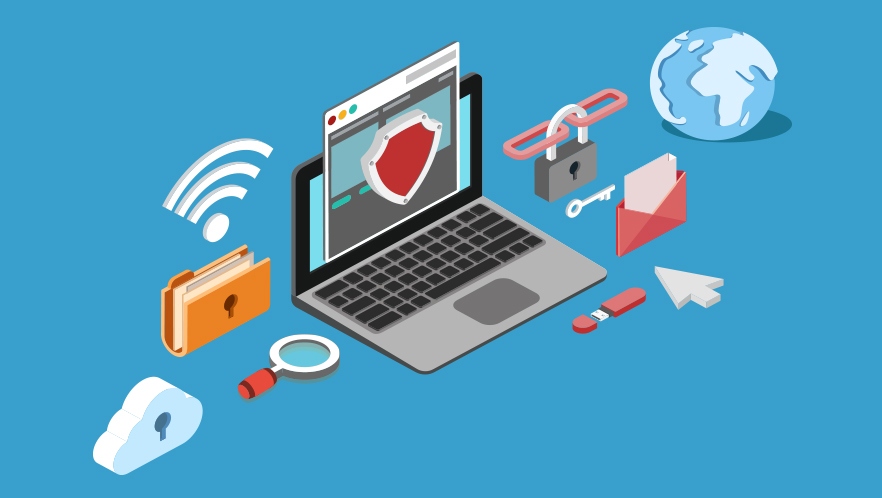Securing desktop, mobile, and tablet devices is becoming increasingly important in a new era of cybercrime innovation. Thankfully, there are a number of techniques that can be deployed in order to facilitate corporate IT security. Securing a network of computers for a company can be quite a challenge, as during the festive season there are considerably more dangers. Below is a list of the 10 best ways to optimize security during the holiday season to prevent a hacker attack.
#1 – The Internal Firewall
The firewall is the first line of defense for any network. A firewall decides what files are allowed through the network and which ones are refused. An external firewall is essential, but many organizations are now implementing internal firewalls which add an additional layer of security.
#2 – Information Assimilation
Employees must be educated on best practices. The most important of these practices are common sense, such as never leaving a computer unlocked, maintaining a clean desk, not writing down passwords on sheets of paper at work, never opening links in emails, etc. While these might seem obvious, it happens time and time again and people need to be made aware of basic security practices as much as possible.
#3 – No Network Connection
After the holidays, employees will get new devices. These new devices will have viruses and bugs and they will likely be connected to the corporate network. Prevent this from happening where possible and ask employees not to connect private devices to the network, as it is a recipe for disaster.
#4 – A High-Quality Antivirus
A good anti-virus program is now a necessity. There are a number of free tools available, but most of these fall far short of the mark when it comes to IT security. One of the best antivirus solution products is BitDefender. Comodo and Norton Antivirus are also good options. An enterprise-level antivirus program is a prerequisite for any corporation.
#5 – Social Engineering Awareness
Social engineering is still one of the most common ways to gather data. It typically involves pretending to be someone else and getting an employee to give away valuable information. Reiterate that passwords are never to be given away to anybody at any time and make employees aware of how social engineers think.
#6 – Good IT Security Personnel
A specialist is necessary, depending on how large the company may be. Hire an exclusive team or security administrator who is up to date on the latest hacks and scams. The world of cybercrime is increasing in its innovation. All it takes is one breach on the network. Once a hacker has breached the network, they can do all sorts of damage.
#7 – Diversification
Smaller companies have a tendency to put all of their important information in one account or spreadsheet. This is a recipe for disaster as if this becomes compromised, the whole business can go down. You should consider using a third-party for the storage of important information.
#8 – Updates
It is important to regularly update all software as these updates will contain all of the necessary security patches which are exploited by hackers. These updates will also help to prevent the spread of viruses. Newer versions of Windows will have automatic updates, make sure these are enabled.
#9 – WPA2
WPA2 is much stronger than WPA on a WiFi network. WPA2 comes with different types of encryption such as AES and TKIP. AES is very strong and hackers will have a difficult time penetrating WiFi secured by AES. It is more likely that they will attain the password through a social engineering technique as opposed to hacking it using sophisticated methods.
#10 – Backup and Insurance
If all else fails, make sure you have insurance in place in the event of a breach. Make sure to backup all of your sensitive data on a regular basis. All eventualities are possible and sometimes files can be accidentally deleted without any malpractice.
It is important to be proactive in terms of IT security. There is often no going back once a hacker has breached the network so insurance, backups, and preventive security measures are necessary.
